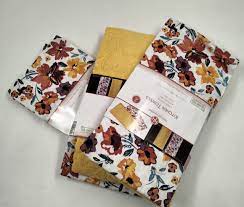Adire is a traditional Nigerian textile art that involves resist-dyeing fabric. The name “Adire” is derived from the Yoruba language, where “adi” means “to tie,” and “re” means “to dye.” The process of creating Adire involves tying or sewing fabric in specific patterns and then dyeing it, resulting in unique and intricate designs. Here are some aspects of the usefulness of Adire:
- Cultural and Artistic Significance:
- Adire is deeply rooted in the Yoruba culture of Nigeria and has significant cultural and artistic value. It is often associated with traditional ceremonies, celebrations, and rituals.
- Clothing and Fashion:
- Adire fabrics are commonly used to make traditional Yoruba attire, such as buba (blouse), iro (wrapper), and agbada (flowing gown). The vibrant and visually striking patterns make Adire clothing highly sought after for special occasions and cultural events.
- Home Decor:
- Adire fabrics are also used in home decor items such as pillowcases, curtains, and wall hangings. The unique patterns and colors add a touch of cultural richness to interior spaces.
- Economic Empowerment:
- The production of Adire provides a source of income for local artisans and communities involved in the craft. It contributes to economic empowerment and supports traditional skills.
- Sustainable Fashion:
- Adire is often considered a sustainable and eco-friendly form of fashion. The use of natural dyes and traditional production methods aligns with environmentally conscious practices.
- Preservation of Heritage:
- Adire plays a role in preserving and promoting the cultural heritage of the Yoruba people. The continuation of this traditional craft helps pass down cultural knowledge from one generation to the next.
- Export and Global Recognition:
- Adire fabrics have gained recognition beyond Nigeria, with international designers incorporating them into their collections. This has led to increased export opportunities and global appreciation for the art form.
- Community Identity:
- Adire fabrics often feature distinctive patterns that are associated with specific communities or families. Wearing or displaying Adire can be a way for individuals to express their identity and heritage.
Overall, Adire holds cultural, economic, and artistic significance, making it a valuable aspect of Nigerian heritage and a celebrated form of traditional textile art.





Reviews
There are no reviews yet.